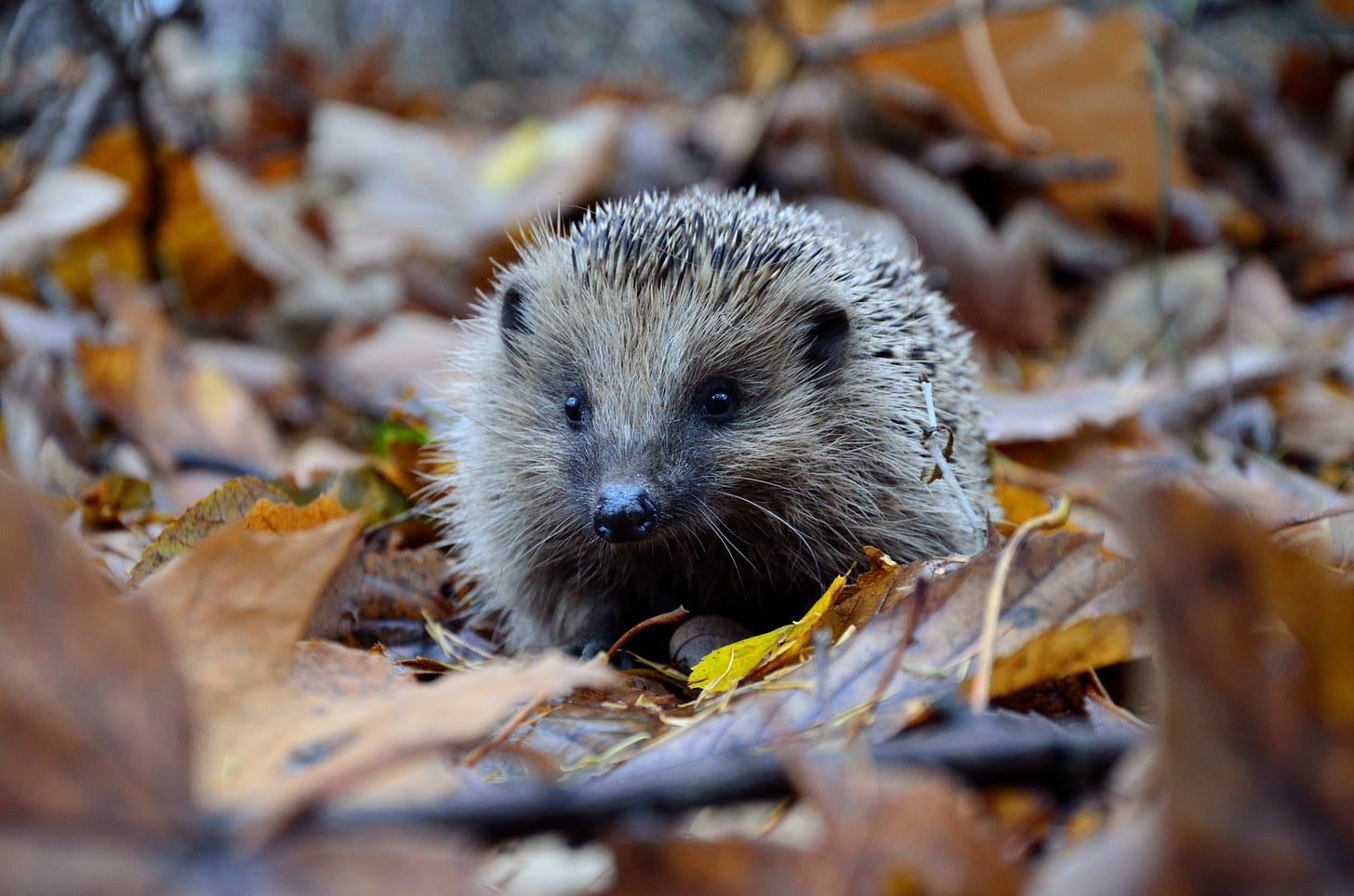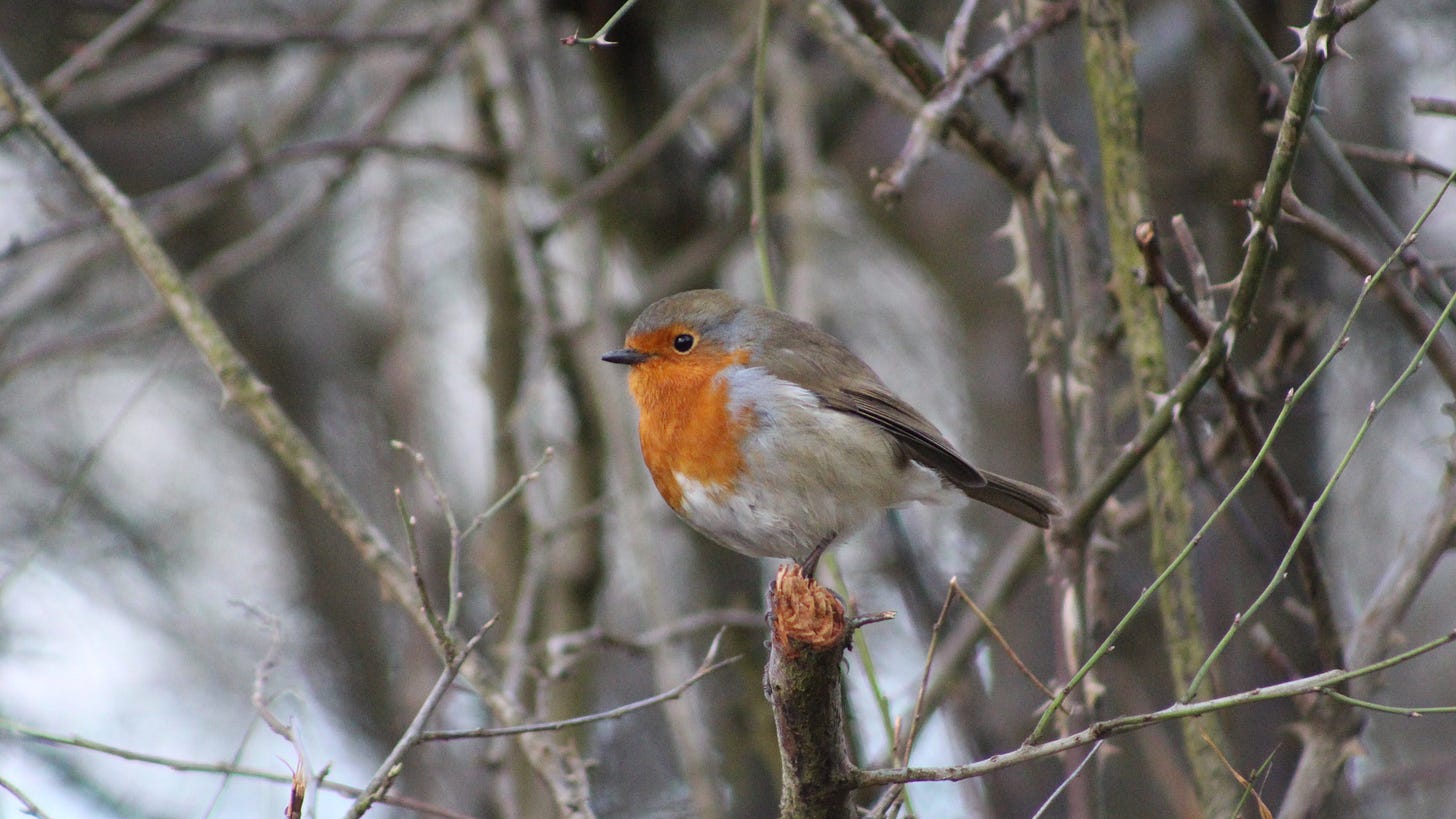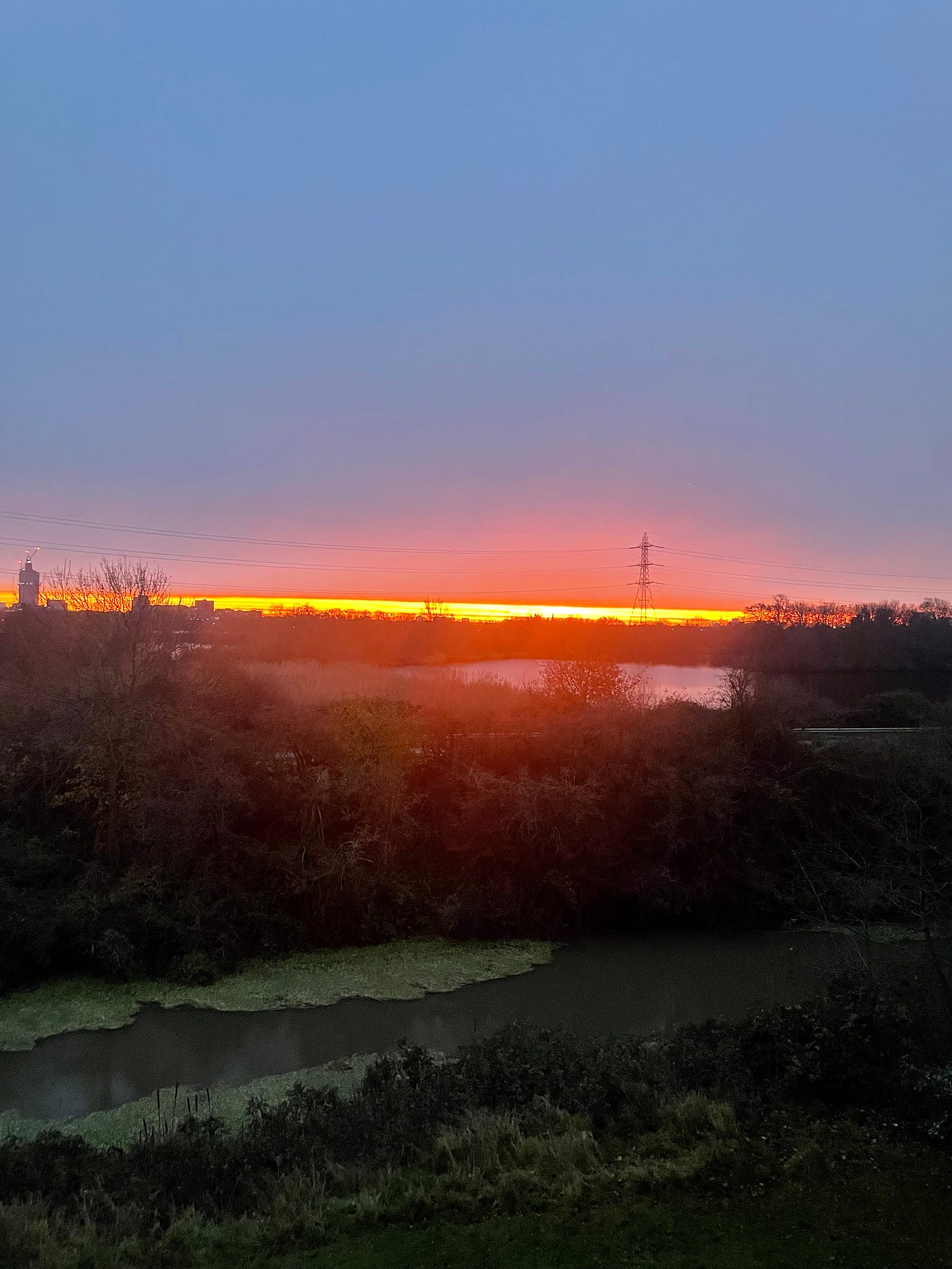Hibernating, reflecting, resting.
Something to consider over Christmas.
A song thrush calls at the dawn’s amber glow on the horizon. The fox, prowling all night, returns to its den. The night shift lasts longer, the day shift is quieter. The city wakes slowly as the year grows old.
It is grey and wet outside, and my duvet holds me in its embrace longer every morning. My work is winding down for Christmas, I’m wrapping up both tasks and gifts, and looking forward to a rest.
The natural world is falling into a slumber, too. Hedgehogs, dormice, and bats are the only mammals that hibernate in the UK, when food is harder to find and temperatures are lower. When the animal has built up enough fat reserves it will find a safe nest and slip into a dormant state. The heart rate and metabolism slow down, and the season passes over leaving them blissfully undisturbed.

Unnoticed below the earth, insects will shut down, too. Ladybirds will gather together in great numbers, huddled together for warmth. Bumblebees will hibernate in the safe comfort of earthy banks and loose soil in flowerpots. Bear this in mind when spending time in the garden over winter.
When the weather is particularly fierce, anything not hibernating may enter a kind of torpid state, reducing its activity over the winter. Badgers and squirrels will adapt as and when the weather conditions require.
Elsewhere, there is movement.
The robin sings all winter, its red breast striking against the bleak white of the winter sky. In the garden it may strike a postcard-perfect pose on a spade handle, jutting from the snow.
Redwings arrive from Scandanavia and will often spend time among flocks of fieldfares in the fields and hedgerows of the countryside - and occasionally the gardens and parks of our cities. More rarely, the stunning waxwing will venture this far south.
In the wetlands, thousands of wintering teal, wigeon and shoveler will arrive to spend the icy months here before venturing north again in the spring.
Yet the great talons of climate change are far-reaching, and many of these cycles and journeys that have lasted for thousands of years are being disrupted. Winters are growing milder. Food is becoming rarer.
Animals risk entering hibernation too late or waking too early, without the fat reserves to sustain them. Unseasonal weather might trick them into thinking it is spring, but a subsequent cold snap can be fatal. The lifecycles of plants and flowers are falling out of balance with the birds, mammals and insects that rely on them, throwing a carefully evolved and adapted ecosystem into chaos.
As the Arctic warms up, birds are migrating later or choosing to not migrate at all. Each winter the Bewick’s swan arrives in the UK from Siberia, but this year saw the latest winter arrivals in over 60 years. Will there be a day when the majestic arrival of flocks of birds - heralding the winter - is just a memory?
The rampant consumerism of modern Christmas seems to have made this time of year increasingly stressful, instead of an opportunity for peace and reflection. With that consumerism comes far more resource extraction and more carbon emissions than we can handle, so it is our moral responsibility to tread as lightly as we can this festive season.
To help our natural world and give ourselves a fighting chance, instead of gifting new items or gadgets this year, consider:
Second-hand gifts from a charity shop.
Repurposing items you already own but have no further need for.
Something hand-made.
An experience, like a show.
A membership to a wildlife charity like the Wildlife Trusts or Woodland Trust.
Warm houses and supermarkets mean I don’t need to hibernate. But personally I will be using this time to step back from the computer, rest, and appreciate the hues and textures of everything our beautiful wintering natural world has to offer. I encourage you to do the same.
I launched Urban Nature Diary in March of this year and have written something every week since. It has been a challenge I have greatly enjoyed tackling, and I hope you have enjoyed reading. There are plenty more stories I want to share, and will be returning in the first week of January.
I’m looking forward to having you along for the journey.




